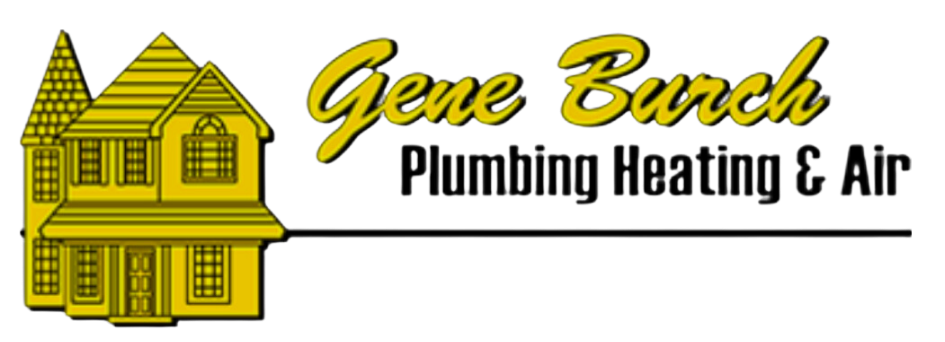It’s that time of year when businesses should start thinking about HVAC systems, especially as seasons change. Seasonal shifts can have a big impact on how these systems work. Proper preparation can ensure that the heating, ventilation, and air conditioning (HVAC) systems are running smoothly year-round. Consistent temperature control not only keeps customers and employees comfortable but also helps in saving on energy costs. Mechanical systems, much like our bodies, need regular attention to perform their best, and HVAC setups are no exception. This attention ensures they stay efficient and reliable, especially when temperatures outside get extreme.
Keeping an eye on the changing seasons means understanding that HVAC needs vary throughout the year. As we move into spring, it’s typically a good idea to start making adjustments to accommodate warmer weather. The goal is not just to function, but to do so efficiently. When done right, seasonal HVAC adjustments can prevent unexpected breakdowns and extend the life of the equipment. By strategically planning maintenance around seasonal demands, businesses can ensure comfort, save on energy bills, and avoid costly repairs. Here’s how you can prepare your business effectively for these seasonal changes.
Schedule Regular HVAC Inspections
Having regular HVAC inspections aligns with being proactive about your system’s health. Think of it like going to the doctor for a check-up — it helps catch small issues before they become big problems. Regular inspections ensure everything is working as it should and any necessary repairs are made on time.
Here’s how you can handle HVAC inspections:
– Schedule inspections at least twice a year, ideally at the start of spring and fall. This timing ensures the system is ready for the demanding hot and cold months.
– During the inspections, technicians typically check crucial parts such as filters, motors, and electrical components.
– It’s also important to review thermostats and ensure they’re functioning correctly, as they play a critical role in maintaining proper temperatures.
By making inspections a routine part of HVAC care, businesses can maintain a comfortable environment and prevent equipment failures when seasonal demands peak. Regular check-ups boost the system’s efficiency, leading to noticeable savings and extending the HVAC system’s lifespan.
Clean and Replace Filters
Filters play a big role in keeping your HVAC system running efficiently. They are like the lungs of your system, capturing dust and debris that could otherwise clog up the works. Over time, filters get full and need to be replaced or cleaned to keep airflow moving smoothly. This not only helps the system function better but also keeps indoor air quality high, which is important for any business space.
Cleaning or replacing your filters depends on the type of filter and the environment. For most commercial settings, it’s recommended to check your filters monthly and change them every three months. If your business is located in an area prone to dust or pollen, you might need to replace them more frequently to maintain efficiency. Here are a few tips for managing your filters:
– Choose high-efficiency filters that are compatible with your system to boost performance.
– Make a schedule for regularly inspecting and replacing filters, noting when each change occurs.
– Consult with your HVAC technician to ensure you’re using the right filter type for each season.
It’s a simple step, but keeping up with your filters can prevent bigger problems down the road and keep your system in top shape.
Adjusting Thermostat Settings
The thermostat is where a lot of energy decisions are made, so it’s smart to give it some attention as seasons change. Adjusting your thermostat settings in line with outdoor temperatures makes sure that you’re not overspending on heating or cooling. This is especially noticeable in transitional seasons like spring or fall, when the temperature outside is milder.
Consider the following suggestions:
– During spring and summer, set the thermostat to a warmer setting when the building is empty and lower it only a few degrees when occupied to maintain comfort.
– If you can, use a programmable thermostat. These offer flexibility and can automatically adjust temperatures based on your schedule. This tiny gadget can lead to significant savings and comfort improvements.
– For open areas like lobbies or halls, it’s good to monitor things closely, as these spaces can require different settings than smaller rooms.
A little tweak in thermostat settings can go a long way in managing costs and maintaining a pleasant environment.
Check and Clean HVAC Components
Another piece in the maintenance puzzle is making sure all components of the HVAC system are in good shape. Key parts, like coils, ducts, and vents, need attention to maintain efficiency. If these components gather dust and debris, airflow can be restricted, putting stress on your system and leading to potential failures.
Here are ways to address component checks:
– Inspect and clean coils regularly since they can collect grime and affect heat exchange efficiency.
– Ensure ducts are sealed and free of leaks to keep airflow consistent and system pressure stable.
– Regularly clean and clear vents of any obstruction to ensure proper distribution of air throughout the building.
Proper component care not only maximizes system performance but also contributes to overall energy savings.
Ensure Proper Insulation and Ventilation
Insulation around your business’s HVAC system is just as important. Good insulation ensures your system holds the temperature steady inside, reducing how hard the system needs to work. Alongside, efficient ventilation is crucial too. It can drastically improve indoor air quality and keep things feeling fresh inside.
Here are a few ways to achieve this:
– Check your building’s insulation to make sure it’s adequate for the current season. Add more if needed, especially in older buildings.
– Employ proper ventilation techniques, such as using exhaust fans where necessary to remove stale air and bring in fresh air.
– Ensure that vents aren’t blocked by furniture or stored materials, allowing for smooth airflow.
Keeping insulation and ventilation in check minimizes energy loss, keeps the environment comfortable, and enhances air quality.
Wrap-Up for Successful HVAC Management
Regular seasonal maintenance for your HVAC system is a straightforward way to ensure comfort and efficiency throughout the year. Prioritizing inspections, filter changes, thermostat adjustments, component cleaning, and proper insulation all play a part in keeping the system well-maintained. These measures are investments in better system health and fewer repairs.
Incorporating these practices can lead to smoother operations and fewer headaches for any business. Setting up these habits might require a little planning upfront but pays off by reducing unexpected outages and maintaining a pleasant work environment. Remember, professional services are always available to provide that extra level of assurance in maintaining your commercial HVAC setup.
To keep your business in top condition all year, ongoing maintenance and timely improvements are essential. For expert assistance with all your HVAC needs, consider exploring our commercial HVAC service. Let Gene Burch Plumbing, Heating & Air be your partner in maintaining a comfortable and efficient environment for your employees and customers.

